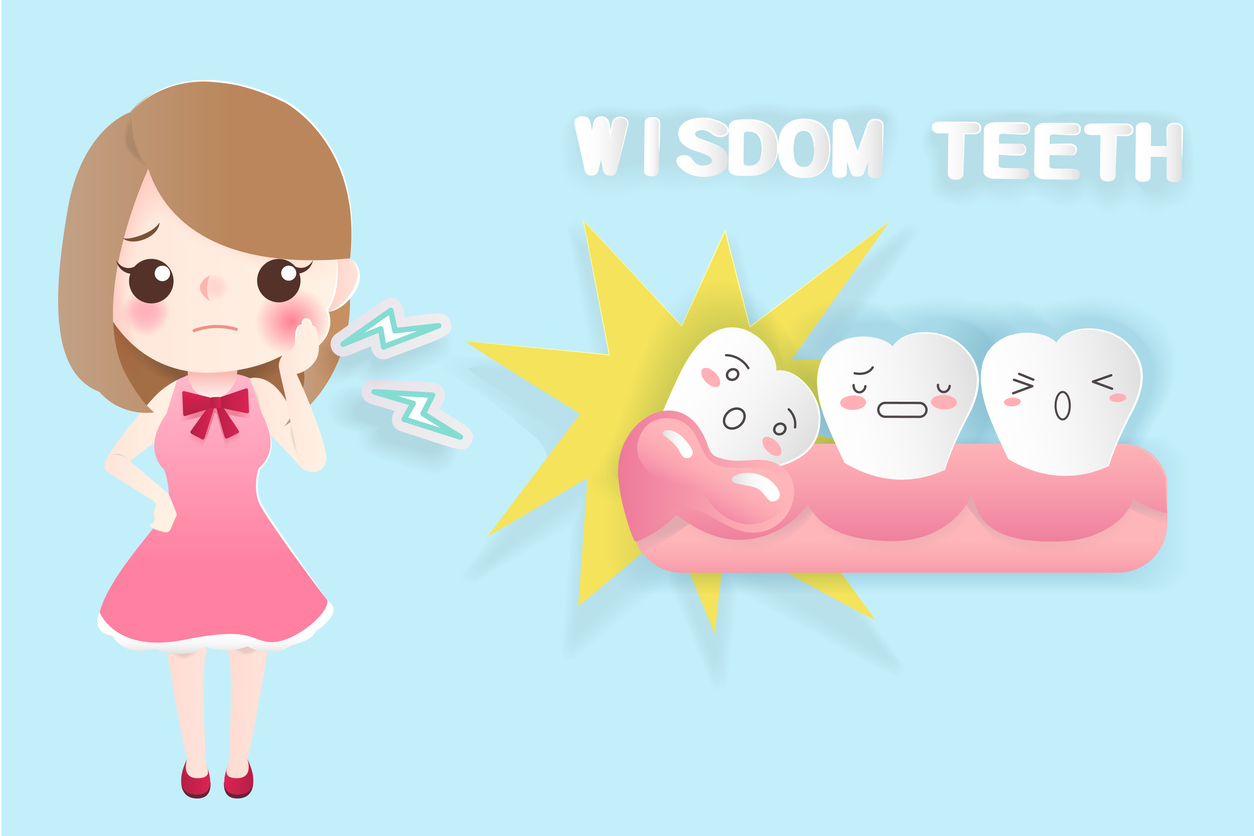The removal of the third molar or informally known as wisdom teeth are one of the most common dental procedures across the globe. Wisdom teeth are the set of molars that grow at the very back of the mouth. Usually, these sets of teeth erupt during the late teens and early twenties. A majority of people have at least one wisdom teeth at the back of their mouth. By the time these teeth are erupting, the other remaining 28 teeth usually already grown.
Therefore, there is not always sufficient room for the wisdom teeth to fit perfectly. Due to inadequate space, wisdom teeth can sometimes erupt at a wrong angle, emerge partially or even get stuck inside. When wisdom teeth emerge like this are referred to as impacted and they need to be extracted.
Post-operative side effects after wisdom teeth removal are rare, but they are always a possibility. Here are possible side effects of wisdom teeth extraction.
– Pain
Pain is always inevitable after wisdom teeth extraction. Usually, pain prescription medication is effective in reducing post-operative discomfort. Preferably, take your first pain medication within the first six hours after the anesthesia wears off. If the pain persists several hours after taking the medication, contact your dentist immediately.
– Nerve Injuries
Wisdom tooth has a nerve that transmits signals to your brain from your lower lip, lower teeth and chin. In most people, there is a gap found between the wisdom teeth and the nerve. However, in other people, that gap does not exist. In such cases, during surgery, the nerve gets irritated that can cause your lips, or lower half of your jaw becoming numb for several weeks. In a rare instance, this effect can be permanent.
– Dry Socket
Dry socket is a condition that occurs when the blood clot becomes dislodged on the healing socket or doesn’t form a blood clot at all. In some cases, patients are able to see the jawbone beneath. Dry socket causes throbbing pain or foul smell in the mouth and the best way to identify it is visually. Patients who don’t take proper care of their wound or smoke are at a higher risk for dry socket. If this occurs to you, ensure that you contact your dentist right way.
– Swelling
Swelling around the surgery area is common. Usually, this is resolved 2-3 days after the procedure. To control the swelling, apply an ice pack against your cheek for 30 minute intervals every day. However, if the swelling does not go way contact your dentist.
– Dry Lips and Sore Throats
Your mouth may become dry or cracked at the corners because it needs to be stretched out during the procedure. Moisturise your dry lips with ointments and balms. The extraction procedure may also cause swallowing painful. While these symptoms normally resolve on their own, consider using home-made remedies such as chamomile tea, honey or garlic to fasten the recovery.
Bottom Line
If you are in need of wisdom tooth removal or experiencing any side effects, contact or schedule an appointment with our dentists in Melbourne today. Our dentists are highly experienced and compassionate they will offer you and your loved ones the dental care and aftercare you need for your well-being.

